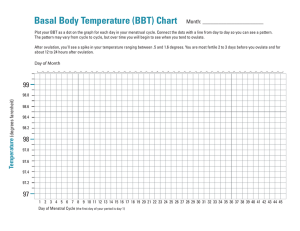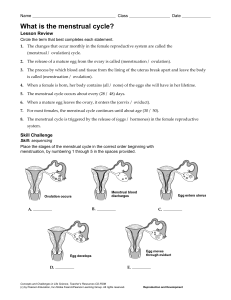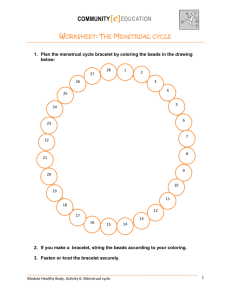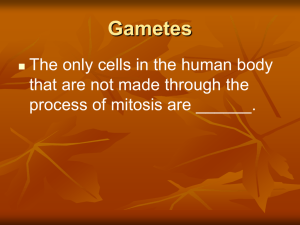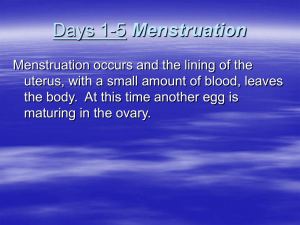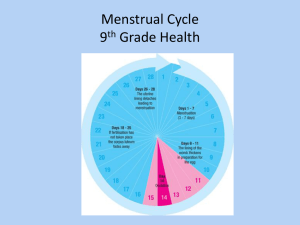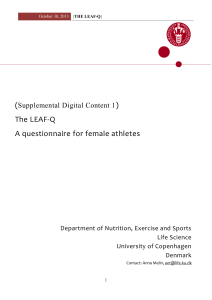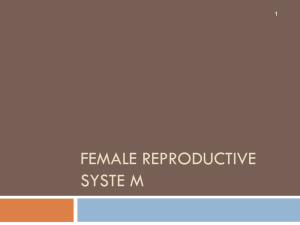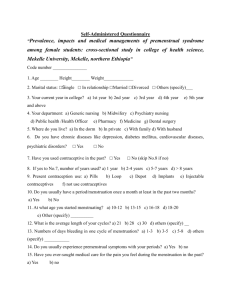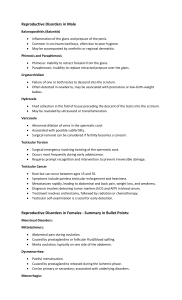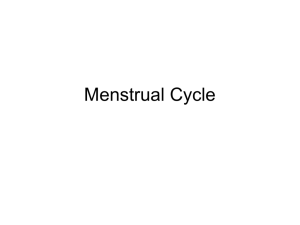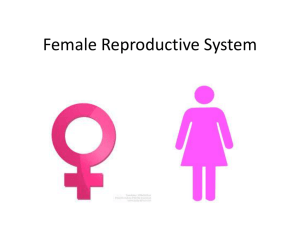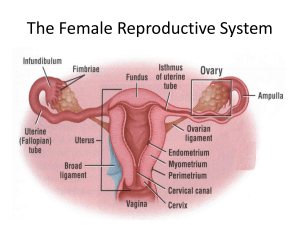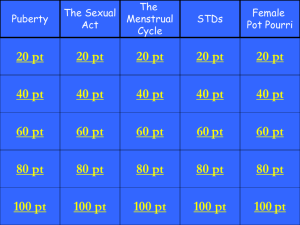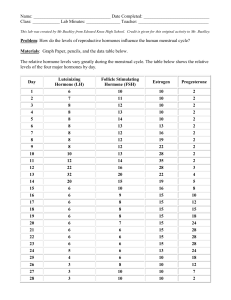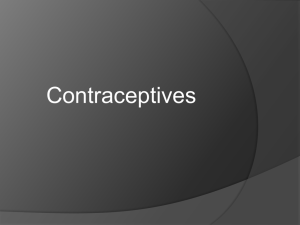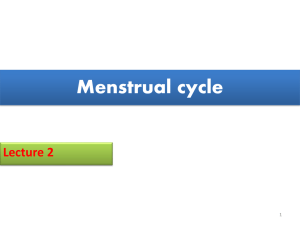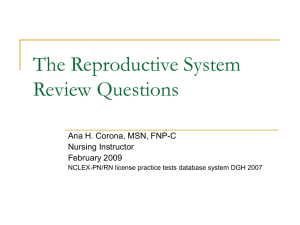The Menstrual Cycle
advertisement
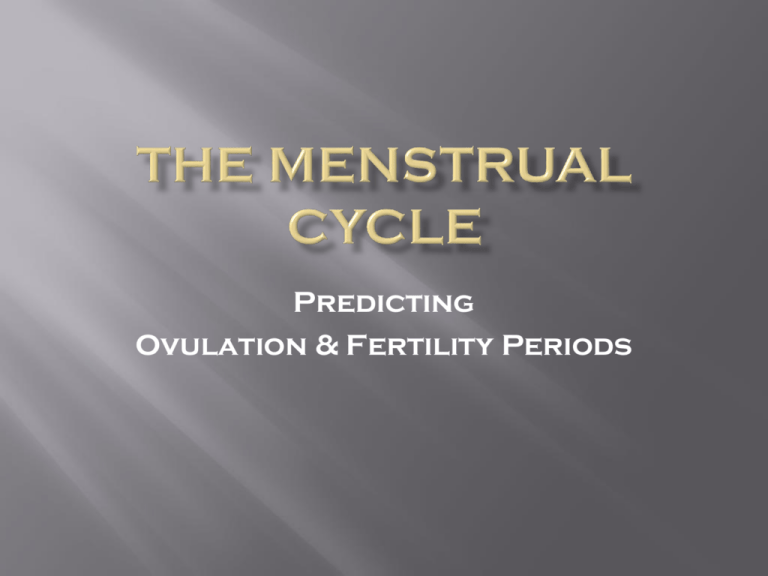
Predicting Ovulation & Fertility Periods Menstruation is considered a unique indicator of a woman’s overall _____________. Answer: Physical Health • • The menstrual cycle is viewed as a reliable predictor of a woman’s general health and well-being. The lack of or complete loss of a woman’s cycle could indicate issues with fertility, bone health, heart disease, and ovarian failure. Menses 1. The periodic flow of blood and mucosal tissue from the uterus. 2. The monthly flow of blood and cellular debris from the uterus that begins at puberty and ceases at menopause. This process is also referred to as emmenia, a menstrual cycle or period. If an ovum is not fertilized, or if the fertilized ovum does not attach to the uterine wall, the uterine lining is not needed The muscles of the uterus contract, causing the lining to gradually break down The lining passes through the cervix into the vagina and out through the vaginal opening 4 to 7 days Cycles Vary from female to female Natural causes 1. Pregnancy 2. Breast-feeding 3. Menopause Lifestyle factors 1. Stress - Mental stress can temporarily alter the functioning of your hypothalamus — an area of your brain that controls the hormones that regulate your menstrual cycle. Ovulation and menstruation may stop as a result. Regular menstrual periods usually resume after your stress decreases. 2. Low body weight - Excessively low body weight interrupts many hormonal functions in your body, potentially halting ovulation. Women who have an eating disorder, such as anorexia or bulimia, often stop having periods because of these abnormal hormonal changes. Lifestyle factors 3. Excessive exercise - Women who participate in sports that require rigorous training, such as dance, body building, long-distance running, cycling, and gymnastics may find their menstrual cycle interrupted. Several factors combine to contribute to the loss of periods in athletes, including low body fat, stress and high energy expenditure. Medications – Antipsychotics, Cancer chemotherapy, Antidepressants, and Blood pressure drugs Contraceptives - Some women who take hormonal birth control may not have periods. Contraceptives that are ingested, injected, absorbed, or implanted (intrauterine & sub-dermal), may cause amenorrhea. When hormonal contraceptives are stopped, it may take three to six months to resume regular ovulation and menstruation cycles. Calendar or Rhythm Method Body Temperature Method Ovulation/Cervical Methods Rise in body temperature after ovulation Sampling of cervical mucus and cervical positioning Ovulation Predictor Kits Combination of all methods or urine sample tests
